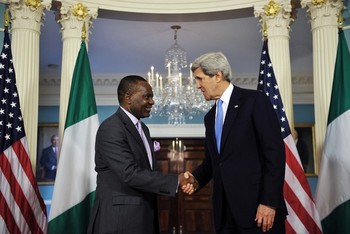The International Monetary Fund (IMF) has recently emphasized the critical need for Nigeria to raise non oil revenues to ensure fiscal sustainability while maintaining infrastructure and social spending.
This advice was due to the uncertain global outlook and the likelihood of oil prices that is remaining low,
In the just concluded Article IV Consultation with Nigeria on March 30, the IMF Executive Board welcomed renewed effort to adopt legislation to spur investment in the oil and gas sector, and promote policies to strengthen governance of the sector.
The Fund noted that the Nigerian economy was facing substantial challenges because it had been hit hard by the decline in oil prices, with the resultant slowed growth and macroeconomic imbalances.
Lower oil prices have significantly affected the fiscal and external accounts, decimating government revenues to just 7.8 per cent of GDP and resulting in the doubling of the general government deficit to about 3.7 percent of GDP in 2015.
While the oil sector plays a central role in the economy, the non-oil sector accounts for 90 per cent of GDP.
According to the IMF, Nigeria’s recovery in economic activity is likely to be modest over the medium term, but with significant downside risks.
Growth in 2016 was projected to decline further to 2.3 per cent, with non-oil sector growth projected to slow from 3.6 per cent in 2015 to 3.1 per cent in 2016 before recovering to 3.5 percent in 2017.
The Fund said that general government deficit was projected to widen somewhat in 2016 before improving in 2017, while the external current account deficit was likely to worsen further.
Key risks to the outlook include lower oil prices, shortfalls in non-oil revenues, a further deterioration in finances of state and local governments.
Deepening disruptions in private sector activity due to constraints on access to foreign exchange, and resurgence in security concerns, it pointed out.
Raising concerns about the Nigerian authorities’ commitment to their inflation objective, the IMF directors underscored the need for credible adjustment to the large terms of trade shock.
In this context, they welcomed the recent monetary policy tightening and recommended that the Central Bank of Nigeria should target price stability to maintain inflation within the target range.
In addition, the Directors welcomed the authorities’ policy agenda of enhancing transparency, strengthening governance, improving security, and creating jobs



